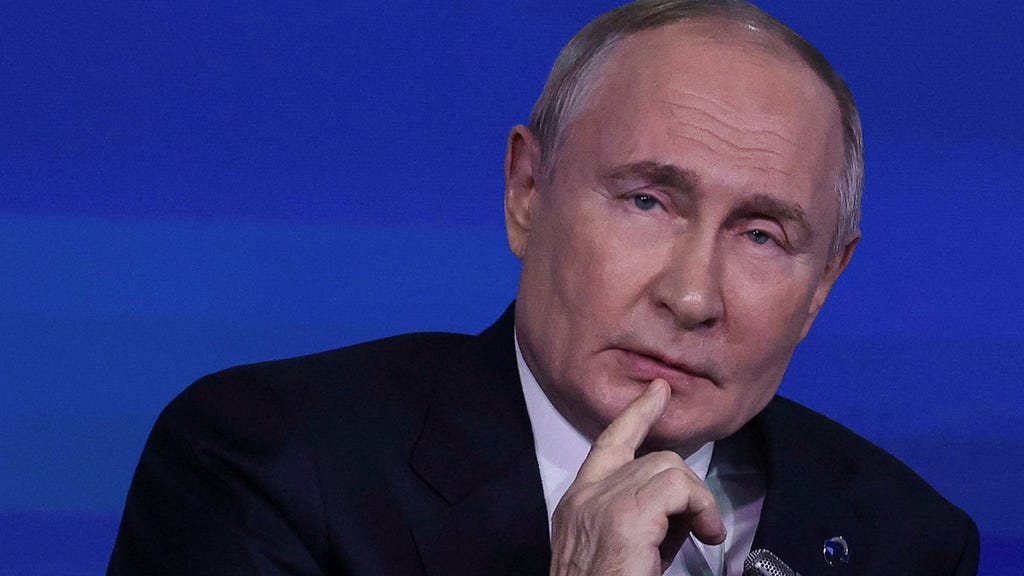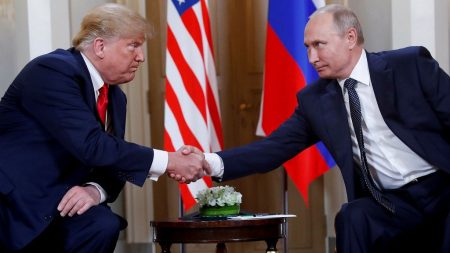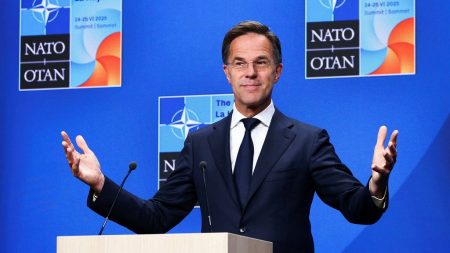Liza Alexandrova-Zorina, a journalist, author, and columnist for Dagens Nyheter, argues that Vladimir Putin’s forced naturalization campaigns in occupied Ukrainian territories serve a sinister purpose: to frame Russia’s aggression as an ”internal Russian affair.” This strategy, she contends, allows Putin to deflect international criticism, suppress dissent, and further his imperialistic ambitions under the guise of domestic policy. By transforming Ukrainians into Russian citizens, Putin creates a fabricated narrative where his actions within these territories are no longer considered acts of international aggression but rather matters of internal Russian governance. This, Alexandrova-Zorina argues, is a cynical manipulation of legal and political frameworks designed to obfuscate the reality of Russia’s illegal occupation and human rights abuses.
The forced passportization strategy, Alexandrova-Zorina explains, is not a novel tactic but a well-worn tool in Russia’s expansionist playbook. Historical parallels can be drawn to similar policies implemented in South Ossetia and Abkhazia after the 2008 Russo-Georgian War, and more recently in Crimea following its annexation in 2014. These forced naturalization campaigns, she argues, are a crucial component of Russia’s hybrid warfare strategy, serving to legitimize territorial claims and consolidate control over occupied populations. The process often involves a combination of coercion, intimidation, and the creation of conditions that make it nearly impossible for residents to function without Russian citizenship. This may include denying access to essential services, employment opportunities, and social benefits to those who refuse Russian passports.
The implications of this forced citizenship are far-reaching and devastating for the affected populations. Beyond the immediate loss of Ukrainian identity and the symbolic violence of being forced to pledge allegiance to an occupying power, this manufactured citizenship strips individuals of their fundamental rights and freedoms. It subjects them to Russian laws, often discriminatory and repressive, and exposes them to the risk of conscription into the Russian military. This latter point is particularly chilling, as it effectively forces Ukrainians to fight against their own countrymen, further fueling the conflict and deepening the humanitarian crisis. Furthermore, by blurring the lines between Ukrainian and Russian populations, Putin aims to erode international support for Ukraine and create a pretext for further aggression under the guise of protecting ”Russian citizens.”
Alexandrova-Zorina underscores the importance of the international community recognizing and condemning Russia’s forced passportization as a violation of international law and a form of political manipulation. She argues that failing to challenge this strategy effectively emboldens Putin and sets a dangerous precedent for future conflicts. By accepting the narrative of an ”internal Russian affair,” the world risks becoming complicit in Russia’s illegal annexation of Ukrainian territories and its systematic repression of Ukrainian citizens. International organizations and democratic nations must hold Russia accountable for these actions and work to protect the rights and self-determination of Ukrainians living under occupation.
Furthermore, Alexandrova-Zorina emphasizes the need for continued support for Ukraine, both materially and diplomatically. Providing Ukraine with the resources it needs to defend itself against Russian aggression is crucial, but so too is maintaining international pressure on Russia through sanctions and diplomatic isolation. It is vital, she argues, to counter the Kremlin’s disinformation campaigns and expose the true nature of its actions in occupied territories. By amplifying the voices of Ukrainians and documenting the human rights abuses they face, the international community can help to ensure that Russia’s crimes do not go unpunished and that the Ukrainian people’s struggle for freedom and self-determination is not forgotten.
Ultimately, Alexandrova-Zorina’s analysis calls for a robust and unified response from the international community to challenge Putin’s strategy of forced passportization and his attempts to rewrite the narrative of the war in Ukraine. This requires not only condemning the violation of international law but also actively working to support Ukraine’s sovereignty and territorial integrity. By recognizing the insidious nature of Russia’s actions and refusing to accept its manufactured justifications, the world can send a clear message that such tactics will not be tolerated and that those responsible will be held accountable. The future of Ukraine, and indeed the stability of the international order, depends on a firm and unwavering commitment to upholding the principles of self-determination and the rule of law.














